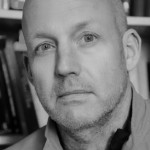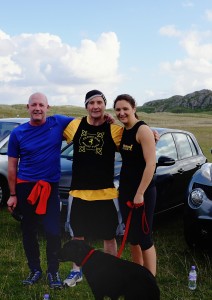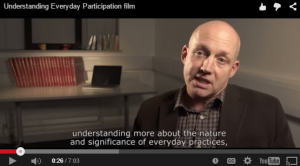 Andy is UEP’s Principal Investigator, managing the project as a whole, particularly fieldwork design and roll-out across the ecosystems. Andy also leads the two Scottish case studies and the secondary survey data work.
Andy is UEP’s Principal Investigator, managing the project as a whole, particularly fieldwork design and roll-out across the ecosystems. Andy also leads the two Scottish case studies and the secondary survey data work.
I am a Professor of Sociology, School of Social Sciences at the University of Manchester. My core research interests are in cultural participation, social stratification and inequality, including the ways in which these are rendered through through ‘the social life of methods‘ and addressed in social and cultural policy. I started out as a social historian in the mid-1980s, took a break from academic life to set up a business in applied cultural research in the early 2000s, and then joined CRESC (The ESRC Centre for Socio-Cultural Change) where I became the leader of a core theme of work on Trajectories of Participation and Inequality. It is here that much of the original thinking behind the UEP project is located and where it was developed in research I did on the ‘non users’ of Manchester’s Cultural Institutions (Miles 2013) and during my time as an ESRC Placement Fellow, seconded to the DCMS (Miles and Sullivan 2012).
Alongside UEP, I am a Co-Investigator on the EPSRC Step Change project on travel behaviour where I co-manage a qualitative, longitudinal panel study and lead a work package on transport histories. I am also involved as a member of the core team in the Great British Class Survey project, which made a considerable impact in both public and academic sociology when its new seven-class model of social class was first published (Savage et al 2013). I have co-/written several books and have had articles published in a range of journals, including Sociology, The British Journal of Sociology, Sociological Review, Cultural Trends, Cultural and Social History, Historical Methods and History Workshop Journal.
As Principal Investigator on UEP I am responsible for the overall management of the project. I take particular responsibility for fieldwork design and implementation across the six cultural ecosystem case studies. I am also leading the two Scottish case studies and manage a work package on the reanalysis of secondary survey data. I liaise with project’s academic advisory group and, working with Catherine Bunting, our national partner group. At Manchester, I oversee the work of one of the two project postdocs (formerly Mark Taylor, whose replacement is in the process of being appointed), and supervise Susan Oman, who is one of the project’s three linked PhD students. I am writing one chapter and contributing to another (with Catherine Bunting and Abi Gilmore) in the forthcoming UEP participation histories book, co-editing a forthcoming (2016) double Special Issue of Cultural Trends on UEP case study research with Lisanne Gibson, and will take the lead in writing the project monograph in 2017.
Within UEP’s research framework my interests lie in the relationship between the temporal and spatial dynamics of participation. Drawing on Pierre Bourdieu’s ideas about capitals, habitus and the cultural field (1984; 1983), alongside the writings of people like Henri Lefebvre and Raymond Williams on spaces and places, my work is especially concerned with processes and expressions of socio-spatial boundary making through participation. This includes the shifting ‘stakes’ that attach to particular forms of activity and the ‘charging’ of participation contexts. In terms of the quotidian realm more specifically, I am interested in issues of vernacular and ‘submerged’ cultural capital, and in Willis’s notion of ‘grounded aesthetics’ (1998). On the flip side, I am interested in how cultural capital emerges, is consolidated and reproduced in the historical formation of cultural elites and how this feeds through into the ‘promises’ of participation in contemporary cultural and social policymaking.
 My preferred form of everyday participation is walking (and occasionally running) in the hills, which is why I moved up from Birmingham to live on the edge of the Lake District in 2001. Ironically, the UEP project means I currently spend much of my time sitting on trains leaving Cumbria, although happily these occasionally take me to down to Anfield to watch Liverpool FC, which is a longstanding passion. Otherwise, without boring people with my increasingly middle-aged tastes in things my parents used to do, like gardening, I am happy to live vicariously through the everyday practices of others: such as my son’s love of martial arts and my wife’s work on outdoor festivals and comic art.
My preferred form of everyday participation is walking (and occasionally running) in the hills, which is why I moved up from Birmingham to live on the edge of the Lake District in 2001. Ironically, the UEP project means I currently spend much of my time sitting on trains leaving Cumbria, although happily these occasionally take me to down to Anfield to watch Liverpool FC, which is a longstanding passion. Otherwise, without boring people with my increasingly middle-aged tastes in things my parents used to do, like gardening, I am happy to live vicariously through the everyday practices of others: such as my son’s love of martial arts and my wife’s work on outdoor festivals and comic art.
Andy’s UEP blog contributions include: 
Introducing the Aberdeen case study
